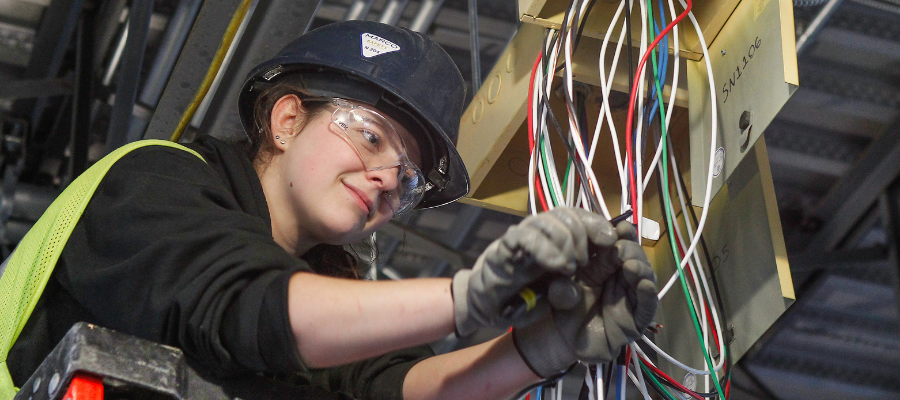Now is the time to build a better Canada
What is the role of Canadian business regarding Reconciliation? Reconciliation is not only a moral imperative—it’s a shared national responsibility. While governments do have formal commitments with respect to Indigenous Peoples, businesses and individuals have enormous influence on shifting systems, culture, and fostering the relationships needed to build a stronger, more just country.
We are at an important time in Canada, when Indigenous (First Nations, Métis, and Inuit) and non-Indigenous peoples are sharing truths, building understanding, and seeking a more equitable future. I believe most Canadians want to do what’s right and to live up to our shared values of fairness, respect, justice, and hope. Reconciliation offers us a path forward—together.
The Truth and Reconciliation Commission’s (TRC) 94 Calls to Action, published a decade ago, continue to provide guidance not just for governments, but also for businesses and all Canadians. Call to Action 92, in fact, challenges Canadian businesses to move beyond statements and toward action, partnership, and systemic change. The 231 Calls for Justice from the National Inquiry into Missing and Murdered Indigenous Women and Girls (MMIWG) also call on businesses to play a role in creating safer, more equitable spaces, particularly for Indigenous women, girls, and 2SLGBTQQIA+ people. In short: businesses are not bystanders. Their choices and commitments matter.
How can your business take steps toward Reconciliation?
From what I’ve experienced—both in past roles and now through my advisory practice—this journey often begins with small, thoughtful steps. In one company I worked for, what began as finding my courage to speak up and ask questions, gradually grew into something much larger, with the support of leadership and colleagues. That work led to a new leadership role as well as intentional reconciliation efforts that soon swept across the organization. I know for a fact when people and companies listen deeply, lead with their hearts and minds, and stay engaged, transformation is possible.
Here are a few places to begin:
Educate: Prioritize your own education—learn about Indigenous history, perspectives, and rights and encourage your teams to do the same. Read Indigenous authors, watch Indigenous-directed films, follow Indigenous voices on social media, and share what you learn.
Build Relationships: Engage with Indigenous communities respectfully, reciprocally, and with humility. Relationships must come before results.
Procure and Partner: Work with, and purchase from, Indigenous-owned businesses. Visit ccib.ca to explore the Certified Indigenous Business member directory. Indigenous entrepreneurs often face barriers to access, yet are launching businesses at a much higher rate than non-Indigenous entrepreneurs.
Hire, Retain, and Advance: Go beyond symbolic inclusion and token gestures. Create meaningful pathways for Indigenous Peoples to join, thrive, and lead within your organization.
Create Safe Workplaces: The MMIWG Calls for Justice underscore the need for workplaces that are not just inclusive, but physically, emotionally, and culturally safe.
What tools or resources can support this work?
There is no one-size-fits-all approach; however, I recommend these as starting points:
• Read the Truth and Reconciliation Commission’s 94 Calls to Action. Focus on Call to Action 92.
• Read the 231 Calls for Justice from the MMIWG Inquiry.
• Understand the United Nations Declaration on the Rights of Indigenous Peoples Act, now Canadian law.
• Consider membership with the Canadian Council for Indigenous Business (CCIB). Additionally, their Partnership Accreditation in Indigenous Relations (PAIR) program is a framework for building strong Indigenous relations.
• Collaborate with Indigenous consultants and educators for their insights—especially those with lived experience and accountability to community.
Final thoughts
Reconciliation is not a project or a checklist. It’s a long-term commitment to unlearning, listening, and building something better. Businesses that enter this work with humility and authenticity can help shape a future that is more inclusive, resilient, and respectful—one we can be proud to leave for the generations to come.






